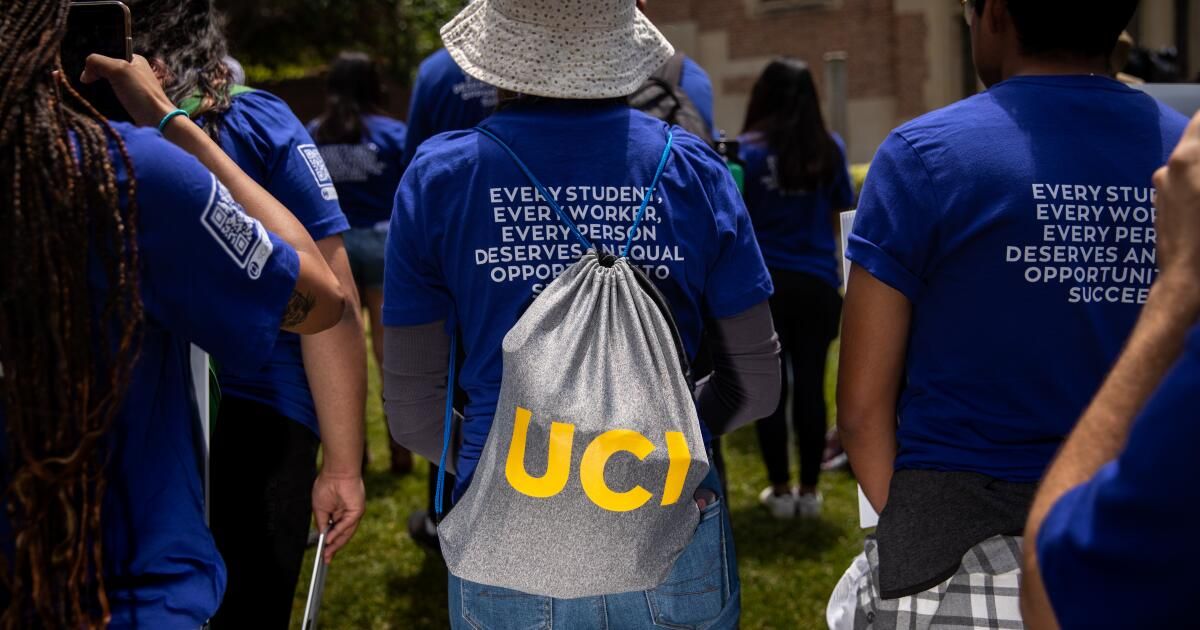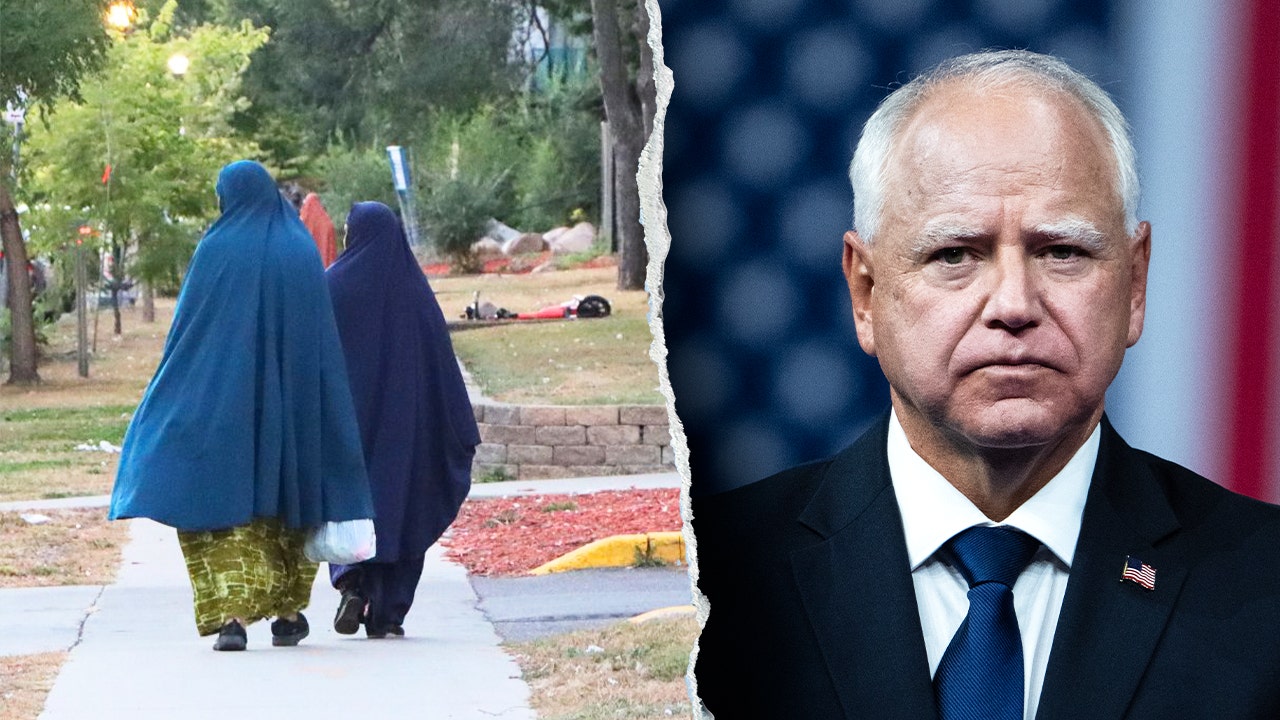Born in Mexico and brought to the United States by her parents when she was 1 year old, Sara has lived in California almost her entire life. As an undocumented immigrant, she pays in-state tuition rates at East Los Angeles College: $619 per semester, a fraction of the $5,286 charged to out-of-state students.
Due to her immigration status, Sara is not eligible for Pell Grants or other federal student aid. Under a 2001 state law and the California Dream Act (Sara pays lower in-state tuition and receives state financial aid for college) she has been able to afford her education. When he receives his associate's degree, he intends to transfer to a Cal State or UC campus and major in business administration.
But on Friday their dreams felt further out of reach, after the Trump administration sued California, alleging that state laws that provide in-state tuition rates and financial aid to undocumented students are illegal. The lawsuit threatens the higher education goals of about 80,000 undocumented college students, many of whom came to the state as children.
“After I get my degree, I want to use it to work in California and contribute to my community,” said Sara, who asked that her last name not be revealed because she fears federal immigration action. “How does that hurt anyone?”
Trump seeks to repeal California law
The Justice Department on Thursday sued California and its three public higher education systems, seeking to overturn a decades-old state law that provides lower in-state tuition to undocumented students who have attended the state's high schools. The Trump administration also sued to end the California Dream Act, which it alleges gives illegal preference for financial aid to noncitizens.
The actions are the latest in a series of similar legal actions the federal government has taken this year against states including Texas, Kentucky, Illinois, Oklahoma and Minnesota.
U.S. Attorney General Pam Bondi said the government took the action because California has a “blatant disregard for federal law.”
State leaders disagreed and said they will defend the laws.
“The Department of Justice has filed three baseless and politically motivated lawsuits against California in a single week. Good luck, Trump. See you in court,” said Izzy Gardon, spokesperson for Governor Gavin Newsom. The other lawsuits are against the Proposition 50 redistricting effort and a state law that prohibits federal immigration agents from concealing their identities with masks.
Although other states have faced similar lawsuits, California, with the largest number of undocumented students in the nation, stands as the biggest test case of Trump's second term. California has been proud of its extensive public higher education system and its pioneering support of immigrant communities.
“It's another attack on immigrants. So it's not a surprise at all,” Atty said. Gen. Rob Bonta, who said he would “review the case and identify appropriate responses.” Bonta noted that with tuition and aid policies, California is “making its own decision. We have 10th Amendment state sovereignty.” He said the state is “using our own funds and following all the laws, and that Trump “really wants to micromanage city and state politics.”
In 2001, lawmakers passed AB 540, which provides in-state tuition rates to all students who graduate from California high schools after attending for at least three years. The California Dream Act was passed a decade later and opened state aid, including Cal Grants, to undocumented students. It was later expanded to include students who were citizens but had an undocumented parent.
The Trump administration's challenge to California's tuition and aid statutes centers on a 1996 federal law that says people in the U.S. without legal permission “should not be eligible, based on their residence within a state… for any postsecondary education benefit unless a citizen or national of the United States is eligible for such benefit… regardless of whether the citizen or national is such a resident.”
Legal scholars have debated whether the federal law affects California's tuition and aid laws because the prices apply to both citizens and noncitizens.
Critics of Trump's actions also say the law does not specifically address tuition fees. Some courts have interpreted the word “benefit” to include cheaper tuition.
Higher education institutions maintain that their enrollment practices comply with the law.
“California Community Colleges are open access institutions dedicated to serving all students. California Community Colleges will comply with all legal obligations and will fully participate in the judicial process alongside our state partners,” said Chancellor Sonya Christian.
Community colleges enroll the vast majority of undocumented immigrant students in the state. Between 12,000 and 14,000 of these students attend CSU and UC.
“While we cannot comment on ongoing litigation, our commitment remains unchanged: we will continue to ensure that all students who qualify under state law have access to a high-quality, affordable education,” Christian said. “We will also continue to fully comply with all current federal and state requirements.”
How students are responding
For students like Sara, the lawsuit creates more uncertainty in a year that she says has “shaken” immigrant communities, including their family members who are citizens and legal permanent residents.
“We have ICE raids, we have people arrested on the street and in their homes. Now they don't even want us to educate ourselves?” she said. “This is my home, not a place where I don't remember where I was born.”
Juan, an undocumented student at Cal State Northridge, shared similar sentiments. He also traveled as a child with his parents from Mexico to the United States and pays state education fees.
“Still, it's expensive: you pay for gas, books, computers,” said Juan, who asked that his last name not be used.
Juan has an older brother who was approved for Deferred Action for Childhood Arrivals, which grants work authorization to people who moved to the U.S. as children and lack legal status. The program has been closed to new applications for years, so your options for earning money are limited.
“I help my parents, siblings and friends with odd jobs: managing social media accounts, housework, taking care of pets,” she said. “That money can help pay for lower tuition rates. It can't cover out-of-state rates.”
At CSU Northridge, the in-state fee per semester is $3,925, compared to $10,585 for non-California residents.
Ju Hong, who attended UC Berkeley as an undocumented student and directs the UCLA Dream Resource Center, said he was “devastated” by the lawsuit.
“I think we're going backwards,” said Hong, who was born in South Korea. “Immigrant youth, students and organizers won important victories with AB 540 through decades of ground-up organizing. This is not just a legal action. It is an attack on immigrant students and youth who have grown up, studied here and contributed to California.”
Jack Feng, a UCLA graduate student and immigrant rights advocate, said the moment calls for broader support for undocumented students across UC.
He said UC “should join the state of California in aggressively litigating this attack.”
“UC should expand immigration legal services, mental health resources and emergency financial aid for undocumented students,” said Feng, who is vice president external of the UCLA Graduate Student Association.
Legal issues loom
Ahilan Arulanantham, co-director of the Center for Immigration Law and Policy at UCLA School of Law, said California's tuition law does not appear to violate the federal law that the Trump administration is using in its challenge.
“Federal law prohibits certain benefits to undocumented students based on their residency in the state. But AB 540 does not make people eligible based on their residency,” he said. “Instead, it ties eligibility to whether students graduated from high school and attended three years of high school in the state.”
He said the difference between residency and high school graduation is a key legal point.
Arulanantham explained that in-state tuition is open to all students, regardless of their legal status. But all students must meet California high school attendance and graduation criteria, even if they now live in another state.
“There are many citizens who would not qualify for in-state tuition under a residency-based rule, but who do qualify under graduation criteria,” he said.
Arulanantham said California's tuition law has sometimes helped more students who have legal documentation than those who don't.
A 2012 report from the University of California that counted AB 540 beneficiaries between 2002 and 2011 showed that in those years, U.S. citizens and people with legal authorization were often more likely to use the law than undocumented immigrants.
In the 2010-2011 academic year, the report found, 1,260 documented UC students received California resident tuition rates compared to 620 “potentially undocumented” people.
UC said it has not compiled a public report of more recent data.
California's law has withstood previous challenges. The state Supreme Court upheld it in 2010 after out-of-state students sued. The U.S. Supreme Court declined to hear an appeal of the case.
In those cases, the judges said undocumented immigrants did not receive preferential treatment because of their immigration status but because they attended and graduated from California schools. They said American citizens who graduated from state schools had the same opportunity.
Thursday's complaint was filed in the Eastern District of California. In June, after the Trump administration sued over the law in Texas, the state agreed to stop giving in-state tuition to undocumented immigrant students. Kentucky and Oklahoma also said they would not defend their registration laws.
Undocumented students have joined the case in Kentucky to fight to keep the law there and are trying to do the same in Oklahoma. Illinois and Minnesota said they would challenge Trump's lawsuits against their states. Neither case has reached a conclusion.
Times staff writer Seema Mehta contributed to this story.












